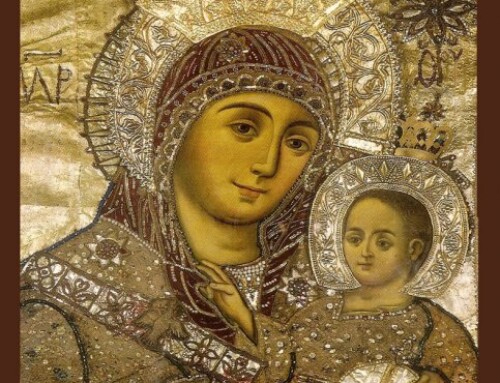Word Magazine September 1963 Page 5/7
ARE WE AFRAID OF OUR OWN PRAYERS
By Dr. Lukas Vischer
Research Secretary of the Department of Faith and Order of the World Council of Churches
Dr. Vischer was WCC’s observer to the Second Vatican Council.
Around the world Christians of different confessions are uniting more and more frequently in joint prayer for unity in Christ? This is a clear and hopeful sign that there is a growing concern about the division of Christendom. As Christians we are becoming increasingly aware that our divisions are contrary to the will of Christ, and an obstacle to the action of the Holy Spirit. Christ made his followers into one people. He sent them out as one people. He therefore wants us to stay together. The power of reconciliation can find effective expression only if, with all our differences, we speak as one people. The Acts of the Apostles says of the first Christian community: “All whose faith had drawn them together held everything in common…With one mind they kept up their daily attendance at the temple, and, breaking bread in private houses, shared their meals with unaffected joy.” It then continues: “and day by day the Lord added to their number those whom He was saving.” (New English Bible).
There is a close connection between these two sentences. For His work of salvation God needs a people which is united in Him, and which refuses to be separated from Him. Is it not, therefore, a promising step forward if Christians of different confessions today at least join in prayer that the unity given in Christ may become more visible among them? Is it not also encouraging when church doors, which have hitherto remained closed, are opened to admit Christians of other confessions to this common prayer?
Fellowship in prayer, it is true, is not yet that unity which Christ demands of us. But it is a sign that they want to submit together to God’s truth and guidance. Joint prayer is the first opening for the work which God has to perform upon us.
There has been a tremendous extension in joint prayer for unity during the last few years, especially during the Week of Prayer for Christian Unity observed January 18-25. The leaflet published by the Faith and Order Department of the World Council of Churches has found its way into many countries and churches and, every year it is translated into fresh languages. Christian churches which hitherto had no contacts with one another are meeting more and more frequently for common worship, and many reports show that these services have been the means of overcoming many deep-seated differences. We all have cause for deep thankfulness for this development.
At the same time, however, one question is bound to arise. If Christians pray for unity, why are we still divided? Why don’t we advance more quickly? Why are we still so far from being one people? Christ said to his disciples, “If you then, bad as you are, know how to give your children what is good for them, how much more will the heavenly Father give the Holy Spirit to those who ask him!’’ (New English Bible). In that case, should not the renewal of divided Christendom be imminent?
Should not confusion and division disappear through the power of the Holy Spirit, as snow melts in the sun? In actual fact, however, things have not changed very much. It is true, the atmosphere is different. We are friendlier to one another, but as soon as the question arises of giving visible form in daily life to our unity in Christ, we come up against the old seemingly insuperable differences and obstacles.
We have only to think of the union discussions between divided churches now underway in some countries, but making such slow progress. We have only to recall the difficulty of organizing cooperation between different churches in the same locality. Nor must we forget that even today fresh divisions are constantly arising. It is therefore not surprising that many persons are beginning to be impatient. Perhaps all this talk about unity is simply hot air? Are we not simply deceiving ourselves about the true situation? Under the cloak of ecumenical friendship are we not basically just as self-centered as we were at the time of the inter-confessional quarrels? Perhaps in the end we are not as interested in unity as might appear from our prayers?
The contradiction is obvious. But it would be wrong to ascribe it simply to dishonesty. The reasons why we still cannot unite lie deeper. We are bound by our conscience. We see the need for our unity in Christ to find fresh expression. But at the same time we see that the convictions which divide us seem to be mutually exclusive. How are we to overcome this tension? Of course unity is desirable. But is it equally clear that the only unity that is worth attaining is the unity which springs from obedience to God and therefore no one must give up what he thinks he must believe in obedience to God.
It is not the obstinacy of a few theologians which divides us; it is not narrow-mindedness, ignorance or prejudice. It is rather our obedience to God which divides us, and we cannot see yet how we could unite while remaining obedient to Him. At a time when unity is in danger of becoming a slogan it is important to remember this. Those who really want to serve the cause of unity must do so in obedience to God. Those who simply respond to slogans and propaganda certainly are not pleasing to God.
But is there not also a holding back which arises from fear rather than obedience? Perhaps we have sought contact with other Christians. We have found in them friends and brothers. We have had conversations and sometimes worked together. We have found a fellowship which brings us joy and enrichment. But then suddenly the difficult moment arises. We see that this fellowship required that we take a further step. We realize that we must re-think one of our convictions, or abandon a custom to which we had become attached. And suddenly we harden. We refuse to continue thinking. We push the responsibility on to the other person asking him, in effect, to change his attitude. And do we not often experience this in our prayers? When we come before God, He shows us part of the way we must take. We do not see the ultimate goal, but we see the next step clearly before us, and we think we can easily move ahead. But when we return to our every day surroundings the great vision has disappeared. We are confronted by the old considerations.
We have become rigid, and are afraid of betraying God’s will. We are afraid of losing something of the tradition entrusted to us and handing over the victory and honour to others. We are afraid of the uncontrollable factors, the risk and strangeness of the situation. We imagine ourselves the object of others criticism. But fear is a great enemy of the Holy Spirit, a greater obstacle to His work than almost anything else.
The theme of the 1963 Week of Prayer is: He is our Peace (EPHESIANS 2:14). This theme has been carefully chosen. Its purpose is to remind us of the source from whom unity must spring. It is He who is our peace. The Week of Prayer seeks to call every one of us, each in his own place, to Christ afresh. The more we are permeated with his peace, the clearer will our attitude in the insoluble tension in which we find ourselves, as divided Christians. If His peace is before our eyes, we shall not seek an easy way of achieving unity, nor shall we refuse to move forward.
The longer we keep our eyes fixed on Him, the clearer will become our human thoughts, desires and plans, but also our human anxieties and misgivings. In His peace we become free. We shall be able to see the way to full unity in Christ clearly before us. And we shall be given the courage to take the step which God shows us today. There can be no doubt that the ecumenical movement needs people who are prepared to take this next step. In many respects our road to unity resembles the life of Abraham. He had to set out to find a country which had not yet been shown to him. But as he went along, he was guided. We must therefore do the same, in order to bear witness to the action of the Holy Spirit in our midst.


